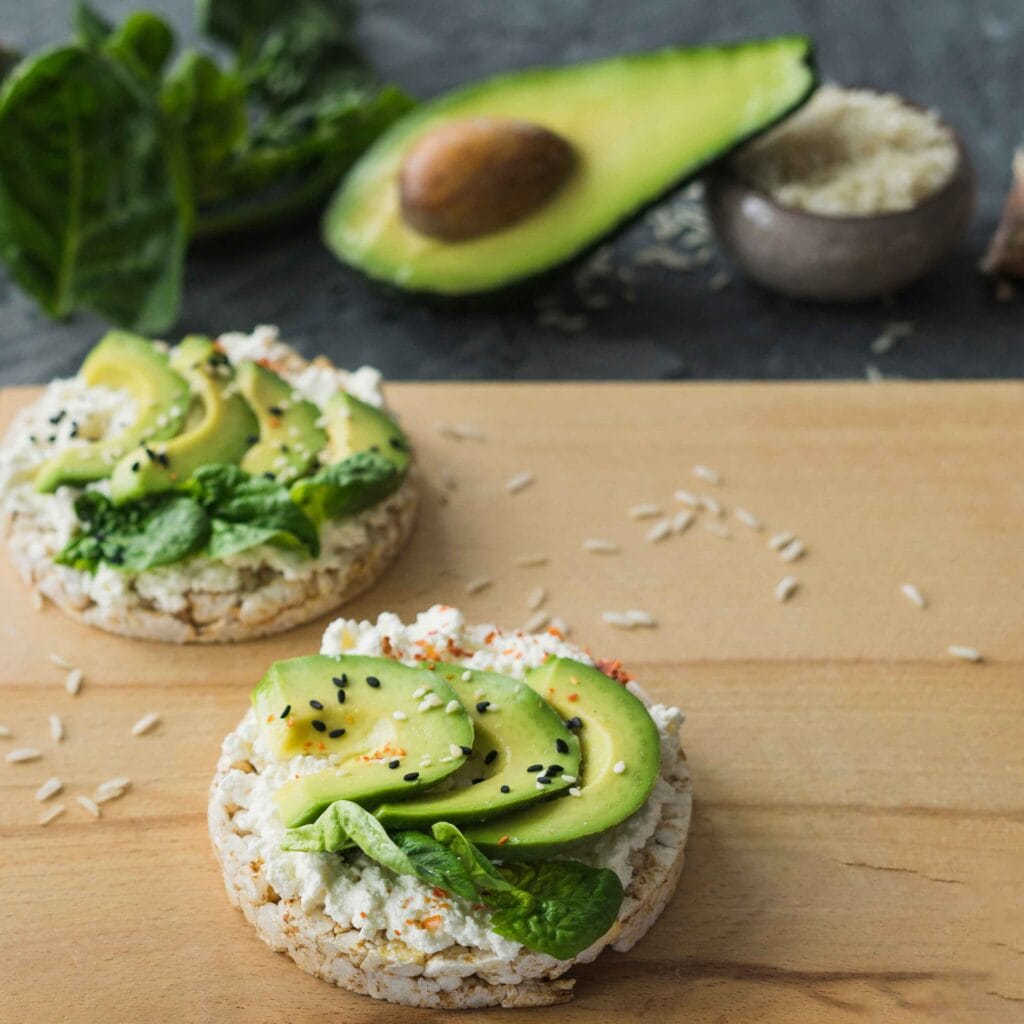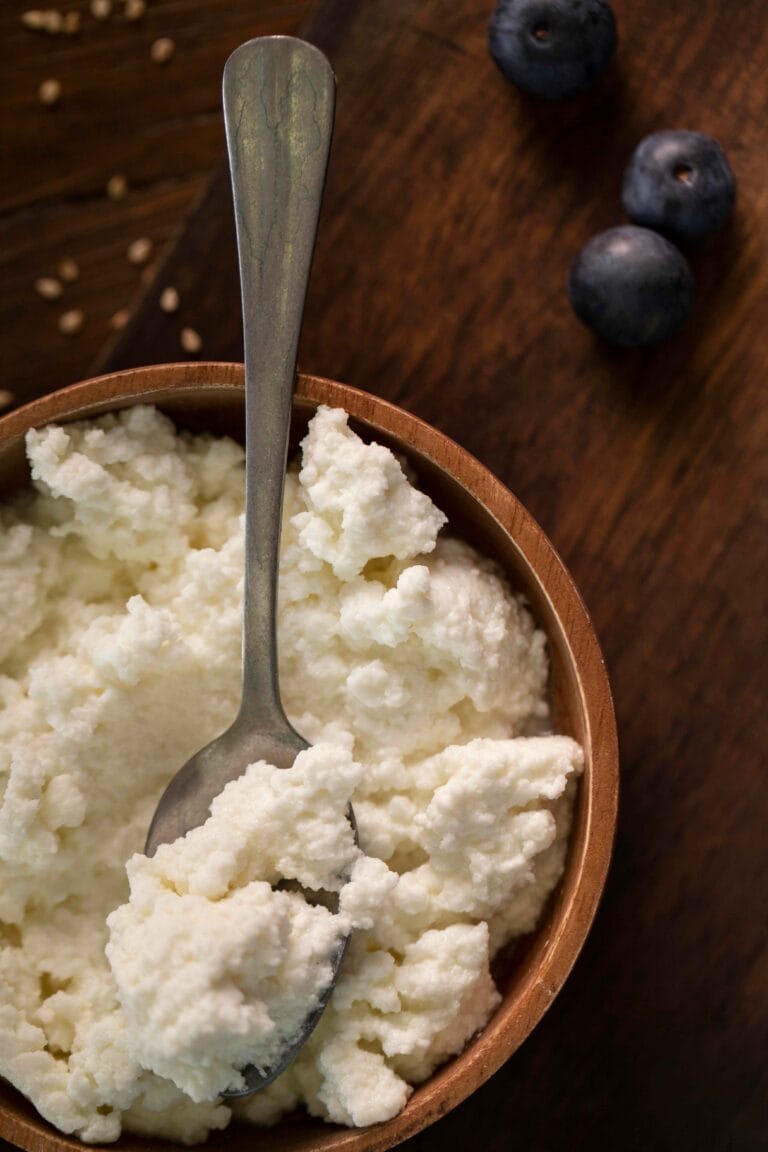10 Surprising Benefits of Eating Cottage Cheese Daily for a Healthier You
Cottage cheese has long been a staple in diets around the world, prized for its mild flavor, versatility, and impressive nutritional profile. As a high-protein, low-fat food, it has gained popularity among health enthusiasts, fitness buffs, and those simply looking for nutritious and satisfying meals. Its creamy texture makes it adaptable to both sweet and savory dishes, making it a favorite for many culinary applications. But beyond its taste and versatility, cottage cheese offers a wealth of health benefits that make it an excellent addition to any diet.
In this article, we’ll explore the rich nutritional content of cottage cheese, its myriad health advantages, creative culinary uses, and address common questions about this wholesome food. Whether you’re considering adding cottage cheese to your daily meals or simply curious about its benefits, this comprehensive guide has you covered.
Cottage Cheese Recipes: Delicious, Healthy, and Easy to Make
Nutritional Profile of Cottage Cheese
Cottage cheese packs an impressive array of nutrients into every serving, making it a standout option for anyone focused on a balanced and health-conscious diet. Its composition reflects the perfect harmony of macronutrients and essential micronutrients, providing your body with both energy and nourishment. Let’s break down what makes it so beneficial.
Macronutrient Breakdown
Cottage cheese is particularly revered for its high protein content. A single cup of low-fat cottage cheese contains approximately 28 grams of protein, making it an excellent source for those aiming to build muscle or maintain lean body mass. This protein is rich in casein, a slow-digesting variety that provides your body with a steady supply of amino acids over time, ideal for post-workout recovery or sustained energy throughout the day.
Additionally, cottage cheese is relatively low in fat, especially in low-fat or non-fat varieties. This makes it a great option for individuals managing their fat intake without sacrificing satiety. It also offers a moderate amount of carbohydrates, which are naturally occurring in the form of lactose, providing a gentle energy boost.
Vitamins and Minerals
Cottage cheese is a treasure trove of essential vitamins and minerals that support various bodily functions:
- Calcium: Vital for strong bones and teeth, calcium in cottage cheese also plays a role in muscle contractions and nerve signaling.
- Phosphorus: This mineral partners with calcium to fortify bones and is essential for energy production at the cellular level.
- B Vitamins: Cottage cheese is rich in B vitamins, particularly B12, which supports brain health, energy production, and red blood cell formation.
- Selenium: This powerful antioxidant protects your cells from oxidative stress, reducing the risk of chronic diseases.
These nutrients work synergistically to enhance overall health, making cottage cheese more than just a simple snack—it’s a superfood in disguise.
Health Benefits of Eating Cottage Cheese
Cottage cheese is not only a nutritious addition to your meals but also a powerhouse of health benefits that cater to a wide range of needs. From muscle growth to bone health and weight management, this versatile dairy product offers something for everyone. Below are the key health benefits of incorporating cottage cheese into your diet.
Supports Muscle Growth and Repair
Protein is essential for building and repairing muscles, and cottage cheese delivers it in abundance. The high-quality protein it provides contains all nine essential amino acids, making it a complete protein source. Casein, the predominant protein in cottage cheese, digests slowly, supplying your muscles with amino acids over several hours.
This slow release is especially beneficial for athletes and fitness enthusiasts who need sustained nourishment for recovery after workouts. Consuming cottage cheese before bed, for instance, can help prevent muscle breakdown during overnight fasting.
Strengthens Bones
Cottage cheese is a rich source of calcium and phosphorus, two minerals critical for bone strength and density. Regular consumption of these nutrients helps prevent bone loss and reduces the risk of osteoporosis, particularly in older adults.
Calcium also plays a role in maintaining healthy teeth and facilitating the proper function of muscles and nerves. When combined with a balanced diet and regular exercise, cottage cheese contributes significantly to skeletal health.
Aids in Weight Management
Cottage cheese is a favorite among individuals aiming to lose or manage their weight. Its high protein content promotes satiety, helping you feel full for longer periods and reducing the urge to snack on unhealthy options. Additionally, the low-calorie density of cottage cheese allows you to consume a substantial portion without exceeding your daily calorie goals.
Furthermore, research suggests that consuming dairy products like cottage cheese may support fat loss while preserving lean muscle mass. This makes it a valuable component of weight management programs and calorie-controlled diets.
Versatile Uses in Cooking
Cottage cheese is celebrated not only for its nutritional value but also for its culinary versatility. Its creamy, slightly tangy flavor pairs well with a wide variety of ingredients, making it suitable for both sweet and savory dishes. Whether you’re preparing a quick snack, a gourmet meal, or a dessert, cottage cheese can easily find a place in your recipes.
Sweet Recipes
Cottage cheese can add a creamy texture and boost the protein content of sweet dishes without overpowering the flavor. Here are some popular ideas:
- Smoothies: Blend cottage cheese with your favorite fruits, a splash of milk, and a drizzle of honey to create a thick, protein-rich smoothie.
- Parfaits: Layer cottage cheese with granola, fresh berries, and a sprinkle of nuts for a nutritious breakfast or dessert.
- Pancakes and Waffles: Incorporate cottage cheese into pancake or waffle batter for a moist texture and added protein.
- Cheesecake Alternatives: Substitute cottage cheese for cream cheese in no-bake or baked cheesecakes for a lighter, protein-packed dessert.

Delicious Sweet and Savory Ideas for Mixing with Cottage Cheese
Savory Dishes
For those who prefer savory flavors, cottage cheese can serve as a versatile ingredient in numerous recipes:
- Salads: Mix cottage cheese with fresh vegetables like cucumbers, tomatoes, and herbs for a refreshing side dish.
- Dips and Spreads: Combine cottage cheese with seasonings, garlic, and herbs to create a creamy dip for vegetables or crackers.
- Stuffed Vegetables: Use cottage cheese as a stuffing for bell peppers, zucchinis, or mushrooms, blending it with spices and grains like quinoa.
- Casseroles and Pasta: Cottage cheese can replace ricotta in lasagna or be added to casseroles for extra creaminess and protein.

Most Popular Ways to Eat Cottage Cheese: Sweet, Savory, and Creative Recipes
Quick Snacks
Cottage cheese is an excellent option for quick, nutritious snacks when you’re on the go:
- Fruit Pairing: Top a bowl of cottage cheese with sliced peaches, pineapple, or berries for a quick and healthy snack.
- Rice Cakes or Crackers: Spread cottage cheese on rice cakes or whole-grain crackers and sprinkle with seeds or spices for added crunch.
- Avocado Mix: Combine cottage cheese with mashed avocado and a dash of lime juice for a creamy, nutrient-rich spread.
Its adaptability in cooking ensures that you’ll never run out of ideas to enjoy this healthy dairy product.

Potential Considerations When Consuming Cottage Cheese
While cottage cheese is a nutrient-dense food with numerous health benefits, there are a few considerations to keep in mind when incorporating it into your diet. Being aware of these factors can help you make informed decisions and enjoy cottage cheese in a way that aligns with your health needs.
Sodium Content
One of the key concerns with cottage cheese is its sodium content. Many commercial varieties contain significant amounts of sodium, which is added as a preservative and flavor enhancer. High sodium intake can contribute to increased blood pressure and may be a concern for individuals with hypertension or cardiovascular issues.
Tips to manage sodium intake:
- Opt for low-sodium or no-salt-added cottage cheese varieties.
- Pair cottage cheese with fresh fruits or vegetables to balance the flavor and reduce the need for additional seasoning.
- Check nutrition labels carefully to ensure the sodium content fits within your dietary guidelines.
Lactose Intolerance
Cottage cheese, like most dairy products, contains lactose, a natural sugar found in milk. Individuals with lactose intolerance may experience digestive discomfort after consuming it. However, cottage cheese generally contains lower levels of lactose compared to milk or other dairy products due to its fermentation process.
Alternatives for those with lactose sensitivity:
- Choose lactose-free cottage cheese products, which are widely available in stores.
- Experiment with small portions to gauge tolerance levels.
- Consider plant-based alternatives that mimic the texture and flavor of cottage cheese, such as cashew or almond-based versions.
Selecting the Best Option
To maximize the health benefits of cottage cheese while minimizing potential drawbacks, selecting the right product is essential.
Tips for choosing cottage cheese:
- Low-fat or full-fat?: Choose low-fat versions if you’re watching your calorie intake, but full-fat options can be suitable for individuals following low-carb or keto diets.
- Organic or conventional?: Organic cottage cheese may be preferable for those avoiding added hormones and pesticides.
- Texture preferences: Cottage cheese comes in small-curd and large-curd varieties, allowing you to choose based on your taste and culinary needs.
By making thoughtful choices, you can enjoy cottage cheese without compromising your dietary goals or health requirements.
FAQs
Is It Good to Eat Cottage Cheese Every Day?
Yes, eating cottage cheese every day can be good for most people, provided it fits into your dietary goals and nutritional needs. It is a nutrient-dense food that provides high-quality protein, calcium, and essential vitamins and minerals. However, individuals sensitive to lactose or concerned about sodium intake should moderate their consumption or opt for lactose-free or low-sodium varieties.
Daily consumption can support muscle repair, bone health, and weight management, especially when paired with a balanced diet.
What Does Cottage Cheese Do for the Human Body?
Cottage cheese benefits the body in several ways:
- Builds and repairs muscles: Its high protein content supports muscle growth and recovery, making it an ideal food for athletes and active individuals.
- Strengthens bones: Rich in calcium and phosphorus, it promotes bone health and reduces the risk of osteoporosis.
- Aids weight loss: Its high protein and low-calorie profile help keep you full, curbing unnecessary snacking and supporting fat loss.
- Boosts energy and cellular function: B vitamins in cottage cheese enhance energy production and support red blood cell formation.
Is Cottage Cheese Good for Your Gut?
Yes, cottage cheese can be good for your gut, particularly if it contains live and active probiotic cultures. These probiotics promote a healthy balance of gut bacteria, improving digestion and boosting immunity. Even without probiotics, its easy-to-digest composition makes it a gut-friendly food for many people.
However, individuals with lactose intolerance should be cautious, as the lactose content might cause digestive discomfort. Opting for lactose-free cottage cheese or consuming small portions can help.
What Type of Cottage Cheese Is Healthiest?
The healthiest type of cottage cheese depends on your dietary goals:
- Low-sodium: Best for individuals managing blood pressure or reducing sodium intake.
- Low-fat or non-fat: Suitable for those watching calorie intake or aiming to reduce dietary fat.
- Organic: Free from synthetic hormones and pesticides, preferred by those prioritizing natural foods.
- Lactose-free: Ideal for individuals with lactose intolerance or sensitivity.
When selecting cottage cheese, check the label for added sugars, sodium levels, and live probiotic cultures to choose a variety that aligns with your health needs.
Conclusion
Cottage cheese is a nutrient-rich and versatile food that can be a valuable addition to a balanced diet. Packed with high-quality protein, calcium, and essential vitamins, it offers a variety of health benefits, including supporting muscle growth, strengthening bones, aiding weight management, and even improving gut health when probiotics are present. Its low-calorie density and adaptability in recipes make it a favorite among health enthusiasts and culinary enthusiasts alike.
By choosing the right type—whether low-fat, lactose-free, or organic—you can tailor cottage cheese to suit your dietary needs and preferences. However, it’s important to consider factors such as sodium content and lactose intolerance when incorporating it into your daily routine. With its numerous health benefits and culinary versatility, cottage cheese is undoubtedly a powerhouse food worth enjoying regularly.
How to Eat Cottage Cheese by Itself: Tips, Tricks, and Health Benefits







